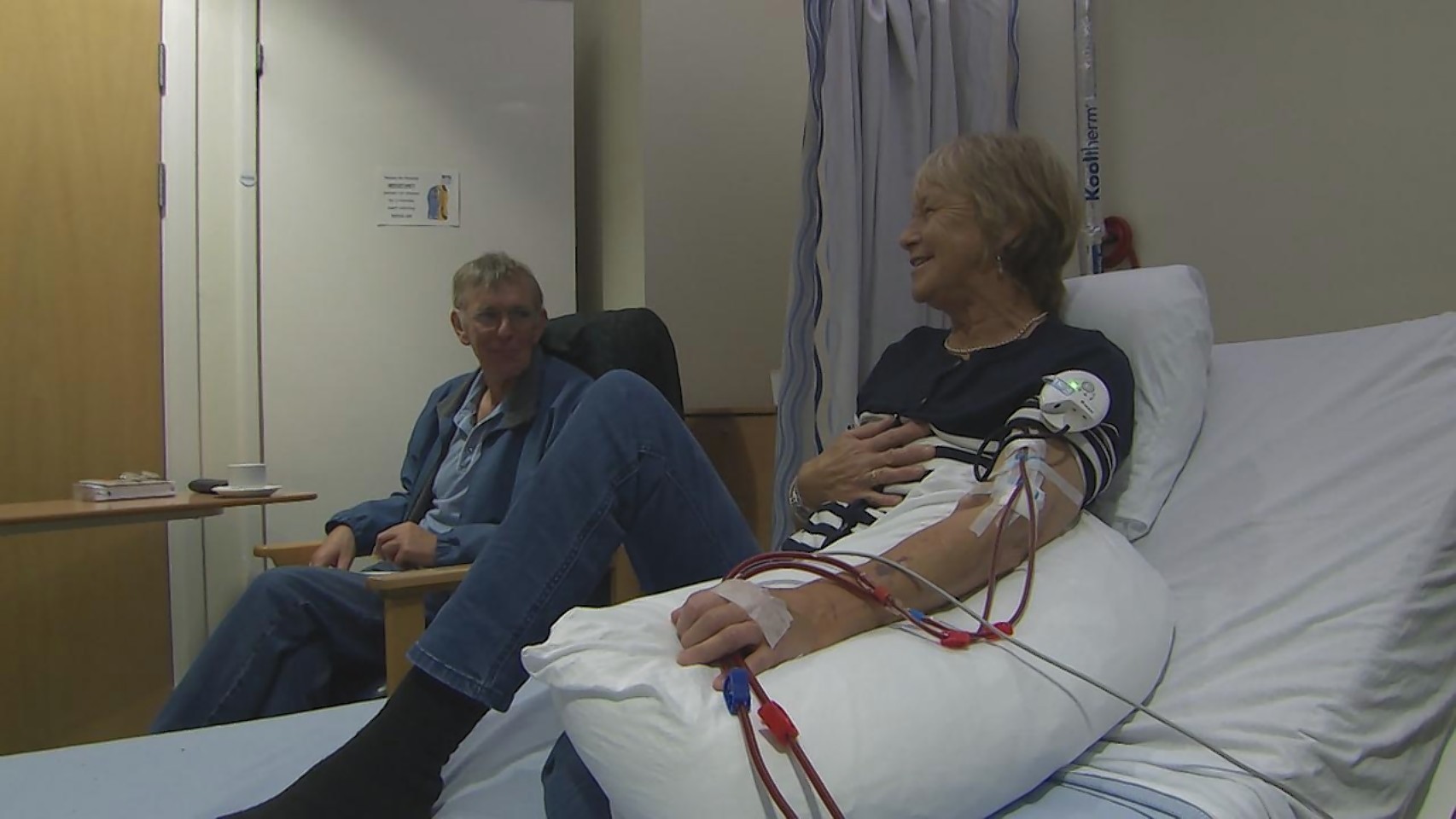As Linda MacGillivray settled down in a hospital chair for her latest dose of dialysis, she was struck by the daily reminder of how much her life had changed.
It had been a decade and a half since she started treatment after finding out in her early 40s that she had kidney disease.
A crofter to her roots – her father had owned an island farm off the Isle of Mull for decades – she always considered herself fit and healthy.
She loved outdoor living, gardening and tending to her animals, and thanked the fresh air of the Highlands for keeping her at her best.
Then, without warning, the freedom she had taken for granted was cruelly snatched away.
Until doctors could find a suitable kidney donor, every day would revolve around treatment to keep the disease at bay. And for more than 15 years, life for Mrs MacGillivray was a “constant monotony” of dialysis.
Fifteen years of planning her life in advance.
Fifteen years of restricting everything she could eat and drink.
Fifteen years of letting go of the jobs and hobbies she had always loved.
And more than anything, the heart-breaking decision to give up her beautiful house on Mull when dialysis at home became too much.
Along with her partner, Dochi – whom she had met only a year before she was diagnosed – the 58-year-old eventually moved to Strontian, West Lochabar, to be closer to the renal unit at Belford Hospital, Fort William.
The Organ Donation and Transplantation Directorate – the UK’s leading matching service – says patients wait about three years on average for a kidney transplant.
However, last year, Mrs MacGillivray was told the “devastating” news that she was incompatible with 99% of the population due to the high level of antibodies in her system.
“It was a terrible blow after all the years of waiting and hoping,” she said.
“Rationally I felt my chances were over, though my heart still hoped.”
And then, out of the blue, came the news she had longed for.
On September 3, 2014 – a date she will never forget – a surgeon at Glasgow’s Western Infirmary called her at home to tell her a donor kidney had been found.
“I could scarcely believe the news,” she said.
Mrs MacGillivray ran to tell her partner, but could not get the words out her mouth.
“The only word I could say was kidney. It was mindblowing,” she said.
Within four hours, the couple were in Glasgow awaiting the operation.
“There was a lot of deliberation about whether it should go ahead,” she remembers.
“I had been on dialysis for so long, my vessels were weaker, and they did not know if it would work.
“But the surgeon said that because I had looked after myself so well, I would make his job easy.
“I was in a state of awe, hope, exhilaration, apprehension – a complete mixture of emotions.
“I think we were both in a bit of a trance as it was so hard to believe it was actually happening.”
The following morning, Mrs MacGillivray, who has a daughter Laura and two young grandchildren, underwent a successful kidney transplant.
After years of waiting for a match, she was given her life back within 24 hours.
Today, as she battles back to full health and starts enjoying the simple things in life again – like going out for a meal, or deciding to go out for the day – she finds it hard to put into words the joy a stranger has brought to her life.
“It is the greatest gift one person could ever give to another,” she said.
“I spoke to a gentleman a few days ago about how marvellous it was to have had a transplant and what it meant to me. He said what I was describing to him seemed like normal life, and how we can take it so much for granted.
“It becomes hard to remember what normal life is when you have been unwell for so long with never-ending dialysis.
“It is absolutely amazing to be given back my life again – almost unbelievable after such a long time.
“At times, I still find it hard to comprehend.”
Throughout her treatment, Mrs MacGillivray never pitied herself or looked for sympathy. She kept as positive as possible, finding new hobbies when she could not go outside, and it is with the same sense of optimism that she is now looking to her future.
“I never, ever gave up hope,” she said.
“Even when I got the news that I only had 1% chance of finding a donor – which knocked me right off my perch – I still had hope.
“Donors are wonderful people, often making decisions at a very difficult time.
“Every day I say a huge thank you to my donor and my donor’s family – they have given me my life back.”

